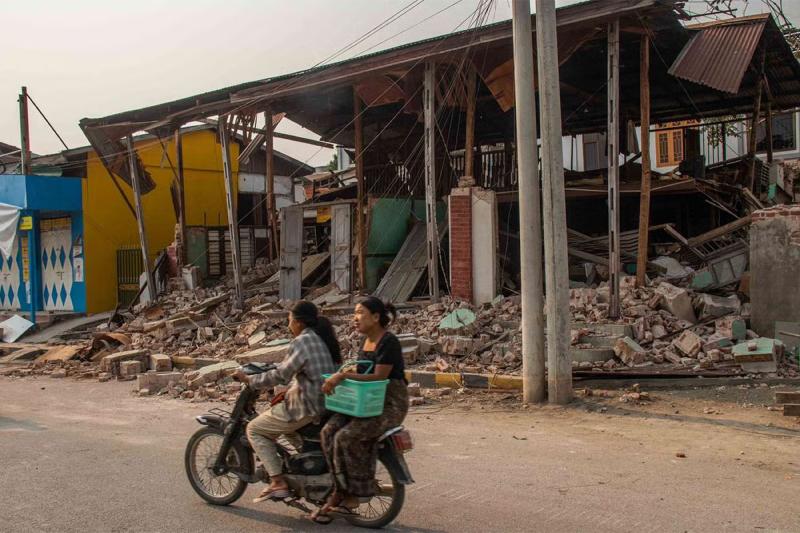

On 28 March 2025, the ground shook in Myanmar – but for many women and girls, their lives had already been shattered long before the earthquake struck.
Since the military takeover in February 2021, the country has been grappling with a deteriorating humanitarian situation. Over 19.9 million people are in need of aid, including 6.3 million children and 7.1 million women. Nearly 3.5 million have been forced to flee due to widespread fighting. Food prices are soaring, public services are overwhelmed, and daily survival has become a struggle, particularly for women and girls.
Then came the earthquake, killing over 3,600 people and destroying thousands of homes, buildings, and roads. Hundreds of people remain missing, and many more have been displaced. For women and girls, many already living in dire conditions, the disaster has left them at a higher risk of trafficking, gender-based violence, and sexual abuse, with protection mechanisms further weakened and humanitarian access restricted.
“The situation on the ground is catastrophic. Entire neighborhoods have been destroyed, and thousands of dead bodies, including pregnant women and toddlers, have already been discovered. But despite this level of destruction, people still have no full access to humanitarian aid. Local responders are being left to fence for themselves, with little to no resources,” said Hana Seita, a local WPHF partner from Myanmar.
But even as the world around them collapsed, women and girls persisted.
Amid chaos and uncertainty, women’s civil society organizations across Myanmar have shown extraordinary courage. Working under growing threats, they are providing life-saving services, standing up for human rights, and ensuring no one is left behind.
These women are doing it all: documenting abuses, advocating for justice, and ensuring the voices of women and marginalized communities are not silenced, often at great personal risk.
However, their work is becoming harder by the day in Myanmar. Since the military takeover, new laws have criminalized unregistered civil society organizations, forcing a lot of women underground. Fearing surveillance or arrest, many no longer register with the authorities, which means they lose access to the funding they desperately need.
Women’s organizations are doing the hard work on the front lines, but they cannot do it alone.
At a time when the need is greater than ever, international support is disappearing. Official development assistance to Myanmar has dropped by 61% since 2020, and less than 1% of that aid goes to women’s rights groups.
Yet, women’s organizations remain essential. They have the trust, the reach, and the capacity to support the most marginalized communities, ensuring no one is left behind.
The United Nations Women’s Peace and Humanitarian Fund (WPHF) has been a lifeline for women’s organizations across Myanmar. Since 2020, the Fund has invested 3.5 million USD to support 59 local women’s organizations working on the front lines to protect women and girls and respond to the crisis.
These women’s organizations are making an impact: they are distributing food and hygiene kits, providing legal aid, supporting small businesses, and ensuring access to sexual violence services for survivors. They have strengthened counseling centers and launched hotline services to address the urgent psychosocial needs of women in local communities.
“WPHF’s support to local women’s groups – like my organization, Women’s Peace Network – is critical for Myanmar today and in the future. When many of us are already facing mass and arbitrary funding cuts, direct, flexible and gender-sensitive assistance becomes a greater necessity”, explained Seita.
Across the region, the crisis in Myanmar has spilled beyond its borders, with neighboring countries such as Bangladesh and Thailand increasingly affected. For displaced women and girls, the trauma of conflict and displacement is just the beginning.
In Cox’s Bazar, Bangladesh, home to hundreds of thousands of Rohingya refugees, women-led groups are on the ground offering trauma counseling and gender-based violence prevention, while helping women and girls rebuild their lives.
To read the full article please head over to its original place of publishing wphfund.org